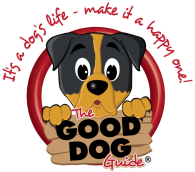Our homes should be safe havens—not only for us but also for our furry friends. But a lot of common household products that appear innocuous to us can be quite dangerous to dogs. From cleaning products to household plants, it’s essential for dog and cat owners alike to have knowledge of hidden hazards and what to do should they become an emergency.
Hazardous or Toxic Foods in the Kitchen
However, some of the most common foods are incredibly dangerous to dogs, leaving many pet owners shocked to realize the information. Highly toxic foods include chocolate, grapes, raisins, onions, garlic and xylitol (a sweetener commonly found in gum and baked goods). Just a small amount can cause vomiting, lethargy, seizures, even death. Furthermore, hot stove tops, sharp kitchen utensils and trash bins, which tend to be filled with tempting scraps, can cause accidents or digestive blockages.
Cleaning Products and Chemicals
Household cleaning products like bleach, ammonia and disinfectants can all be toxic to your dog if ingested or inhaled. Even “pet-safe” products can cause mild irritation. Store all chemicals in a secure place and make sure surfaces are dry before letting your dog step on freshly cleaned floors.
Indoor and Outdoor Plants
Some of the most beloved houseplants — such as lilies, aloe vera and pothos — can be poisonous if chewed or digested by dogs. Poisoning can also come from outdoor plants, such as mushrooms or daffodils. Signs of that exposure may include drooling, vomiting, diarrhea and changes in behavior.
Small Objects and Choking Hazards
Puppies love to chew on everything they find. Small toys, socks, coins, batteries and other everyday items can cause choking or internal blockages if swallowed. Even small items can be dangerous, so be careful what’s left on the floor or within your dog’s reach.
Medications and Supplements
Dogs don’t metabolize human medications the same way we do, and over-the-counter drugs are especially dangerous, even in low dosages. Painkillers, antidepressants and vitamins, such as iron or vitamin D, can lead to significant health problems. Keep medicines out of reach and never give anything intended for humans to a pet without veterinary supervision.
What to Do in an Emergency
If you think there’s a chance that your dog has eaten or come into contact with something toxic, don’t wait for symptoms to worsen. Signs of poisoning are common and include vomiting, drooling, walking unsteadily, rapid breathing or seizures.
In such cases, it’s essential to seek immediate help. If you’re unable to get to a clinic or need urgent care outside of normal hours, consider contacting an emergency vet at home. Services like these provide professional veterinary support right at your doorstep, minimizing stress for both you and your pet.
Prevention Is Key
“Dog-proof” your home regularly, keeping hazardous goodies out of reach, and know what’s safe for pets. Knowing when to seek help can save a life during a health emergency.
By remaining alert and knowing when to step in, you’ll provide a safer, more nurturing environment for your four-legged companion.
Article Supplied
